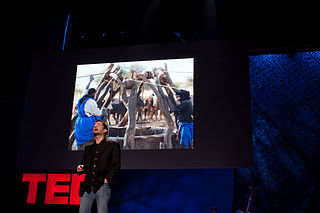A Quote by Randy Pausch
If nobody ever worried about what was in other people's heads, we’d all be 33 percent more effective in our lives and our jobs.
Related Quotes
When they're shooting, when they're chopping off the heads of our people and other people, when they are chopping off the heads of people because they happen to be a Christian in the Middle East, when ISIS is doing things that nobody has ever heard of since medieval times, would I feel strongly about waterboarding? As far as I'm concerned, we have to fight fire with fire.
Our lives are now in a telephone, all our data, all our finances, all our personal information, and so it's proper that we have some constraints on that. But it's not going to be 100 percent. If it is 100 percent, then we're not going to be able to protect ourselves and our societies from some people who are trying to hurt us.
One of the big changes in politics has been because families, individuals, have felt worried, insecure... worried about the economy, worried about their jobs, worried about their kids' futures... actually the disconnect between the public and media discourse and people's everyday concerns has become bigger not smaller.
This election [in 2016] is about electing a president that will restore our economic vibrancy so that the American dream can expand to reach more people and change more lives than ever before. And rebuild our Military and our intelligence programs so that we can remain the strongest nation on earth.




































